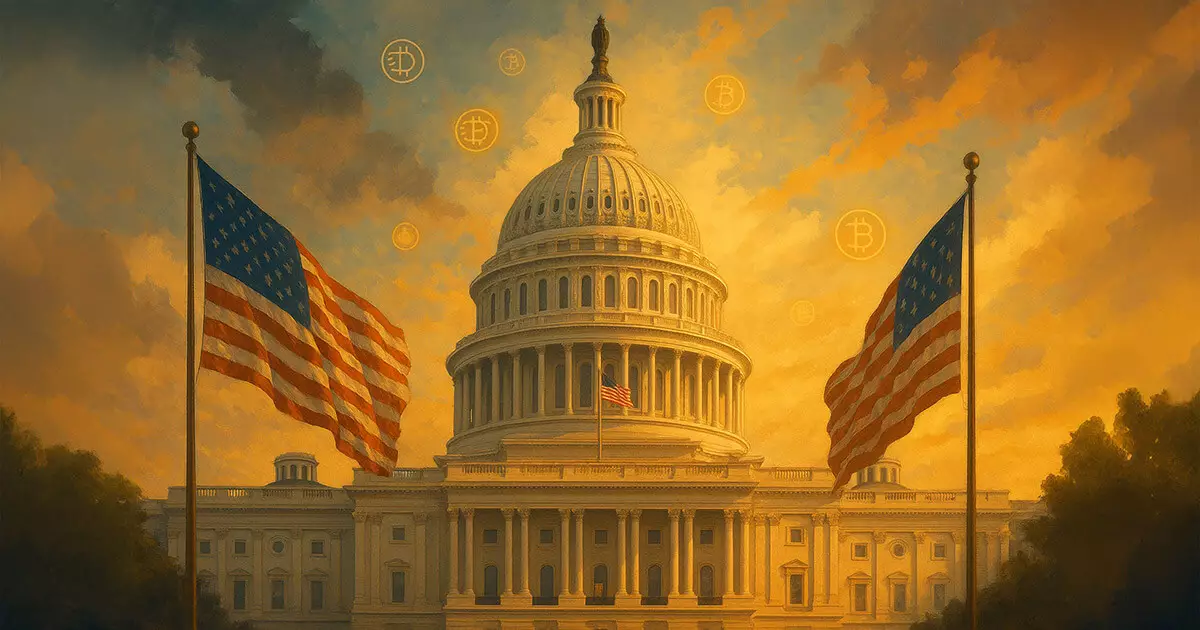In a move that signals both ambition and risk, the U.S. House of Representatives has dedicated an entire week—beginning July 14—to “Crypto Week.” This legislative blitz aims to position the United States at the forefront of global digital asset innovation, but it also reveals underlying tensions about regulation, privacy, and the future of money. While proponents see this as an opportunity to harness the transformative power of blockchain technology, critics warn that the rush to codify and control could smother the very innovation it seeks to foster. As a center-right observer, I argue that this legislative push must include a pragmatic balance—protecting American sovereignty and market freedom without succumbing to overreach or regulatory excess.
Concrete Steps Toward Clarity or Just Political Posturing?
The centerpiece of Crypto Week is the debate on the CLARITY Act, a bipartisan bill that seeks to cut through years of regulatory ambiguity by defining clear roles for the SEC and CFTC. The legislation’s division of digital assets into securities, commodities, and stablecoins creates a functional framework essential for responsible growth. For too long, startups and investors have been stifled by conflicting regulations, caught between the SEC’s restrictive interpretations and the CFTC’s more permissive stance. The CLARITY Act’s delineation promises to unlock innovation—if it truly respects market principles—by reducing unnecessary litigation and regulatory uncertainty. Still, it raises questions about whether the legislation will inadvertently entrench bureaucratic monopolies over digital asset oversight, favoring large institutions at the expense of small innovators.
Stablecoins and the Future of Digital Payments
The passage of the GENIUS Act in the Senate marks a critical pivot toward legitimizing dollar-backed digital assets. By establishing a comprehensive federal framework for stablecoins, the legislation attempts to strike a delicate balance: fostering innovation without sacrificing security or monetary stability. If implemented wisely, this act could usher in a new era where digital payments are faster, cheaper, and more accessible—empowering consumers while reinforcing the dollar’s dominance in global finance. However, the danger lies in regulatory overreach, which could hamstring emerging firms or favor entrenched financial institutions, undermining the very competitive edge that digital assets can provide. The core question remains: will this framework serve as a catalyst for progress, or will it entrench the status quo?
Privacy Versus Surveillance: The Anti-CBDC Act’s Critical Lesson
Perhaps most revealing is the anti-CBDC legislation, which aims to block the Federal Reserve from launching a central bank digital currency (CBDC). On the surface, this move champions individual privacy and financial autonomy—values deeply rooted in American tradition. The fears of government overreach and surveillance through centralized digital currencies resonate with concerns about Big Brother intrusive data collection. While skepticism about CBDCs is justified, outright bans risk missing the opportunity to craft better, privacy-preserving solutions that can coexist with a stable monetary system. Still, in a time of rising global digital authoritarianism, the U.S. stance against retail CBDCs can be seen as a declaration: America will safeguard its citizens’ freedoms against potential overreach of state-controlled currencies.
The Broader Implication: A High-Stakes Game for Digital Power
This legislative package during Crypto Week is more than just regulation; it is a statement of intent. It signals a desire for U.S. leadership in the global digital economy—an arena where China, the European Union, and other powers are making their own moves. However, if the U.S. overregulates or prematurely constrains this sphere, it risks surrendering leadership to adversaries who are more willing to embrace innovation unencumbered by fear of regulation. The balance of power in digital assets is critical. While the schedule and content of these bills aim for stability and protection, they must also preserve the core principles of free enterprise and market competition. Without this nuanced approach, the U.S. risks becoming a regulatory bottleneck rather than a pioneer, and the promise of digital money as a force for economic freedom could be compromised.
In the end, the challenge is clear: How can legislatures craft a set of rules that encourage dynamic growth, protect citizens’ rights, and maintain America’s competitive edge—without becoming the very obstacle that stifles innovation in this fast-moving sector? Crypto Week undoubtedly raises this question at the top of the national agenda, and history will judge whether the pursuit of control or the pursuit of progress will prevail.


Leave a Reply